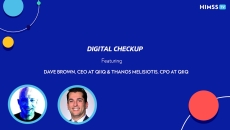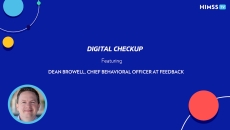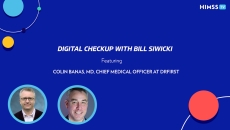Clinical
Artificial intelligence can help relieve clinicians' administrative burden so they can devote more time to direct patient care, say Dave Brown and Thanos Melitsiotis of QiiQ.
The technology has been proven to greatly reduce times to treatment.
The cloud-based platform provides security, scale and the processing power needed for genomic data storage and analyses, eliminating the need for specialized infrastructure and workflows.
Its causes are multifactorial, but feeling undervalued and disrespected are two big factors, says Dean Browell, chief behavioral officer at Feedback, who explains how healthcare organizations can attract and retain experienced doctors and nurses.
Its new Advanced Visualization Workspace includes dozens of clinical apps for cardiology, oncology, neurology and radiology.
It has also brought back 40 hours per week of staff time back to nursing care.
Electronic authorization can be a boon for hospitals and group practices in more ways than one, says Kristina Hutson, senior director of product development at Availity.
Ensuring medication history data, prescription fill insights and other information is scaled to specific populations can lead to better patient outcomes, says Dr. Colin Banas, chief medical officer at health IT company DrFirst.
The move will make it "simpler for our IT and developers, and will allow them to focus more on uncovering creative ways to improve patient care," said the health system's chief digital information officer.
The collaboration aims to find, build and scale digital health companies that focus on children, says Brenda Schmidt, head of enterprise growth at Redesign Health.









